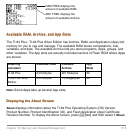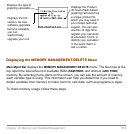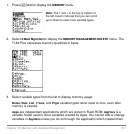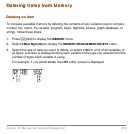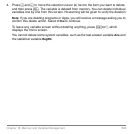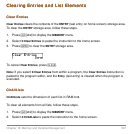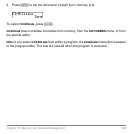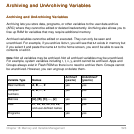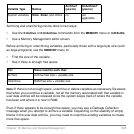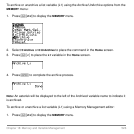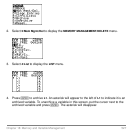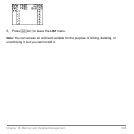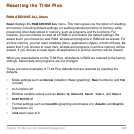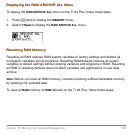
Chapter 18: Memory and Variable Management 523
Archiving and UnArchiving Variables
Archiving and UnArchiving VariablesArchiving and UnArchiving Variables
Archiving and UnArchiving Variables
Archiving and UnArchiving Variables
Archiving and UnArchiving VariablesArchiving and UnArchiving Variables
Archiving and UnArchiving Variables
Archiving lets you store data, programs, or other variables to the user data archive
(ARC) where they cannot be edited or deleted inadvertently. Archiving also allows you to
free up RAM for variables that may require additional memory.
Archived variables cannot be edited or executed. They can only be seen and
unarchived. For example, if you archive list
L1, you will see that L1 exists in memory but
if you select it and paste the name
L1 to the home screen, you won’t be able to see its
contents or edit it.
Note: Not all variables may be archived. Not all archived variables may be unarchived.
For example, system variables including r, t, x, y, and q cannot be archived. Apps and
Groups always exist in Flash ROM so there is no need to archive them. Groups cannot
be unarchived. However, you can ungroup or delete them.
Variable Type Names
Archive?
(yes/no)
UnArchive?
(yes/no)
Real numbers A, B, ... , Z yes yes
Complex
numbers
A, B, ... , Z yes yes
Matrices [A], [B], [C], ... , [J] yes yes
Lists L1, L2, L3, L4, L5, L6,
and user-defined names
yes yes
Programs yes yes



